Music has been an integral part of the world’s culture since prehistorical times and discoveries of ancient musical instruments are still being made to this day. Excavations at the early Neolithic site of Jiahu in Henan Province, China, (7000 – 5700 BC), have produced what may be the earliest complete and playable multinote musical instruments. A sarcophagus representing the oldest illustration of the seven-string lyre and double flute accompanying a ritual from the Minoan Period (3000 – 1400 BC) was also discovered in Crete. Another wide variety of stringed instruments, such as the Ravanahatha, have also been recovered from archaeological sites of the Indus Valley Civilization.
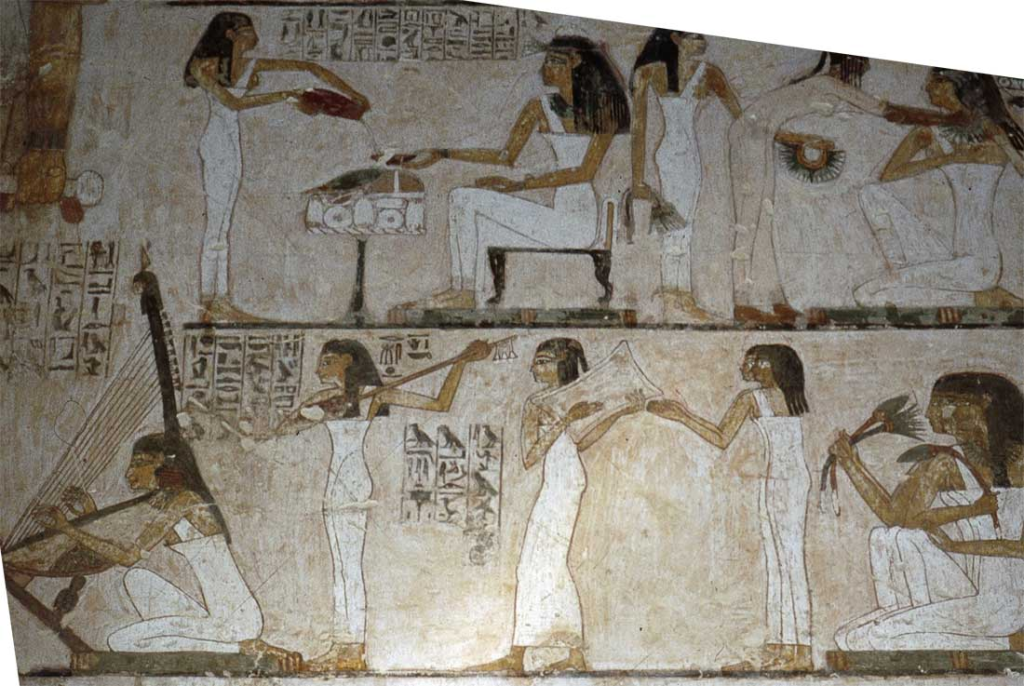
Beyond the more practical aspect of performing with these musical instruments, from around the fifth century BC to the third century AD, the immense impact that music has on the development of one’s personality was recognized by the ancient Greeks and Chinese philosophers. In Greece, the power of music over one’s disposition was emphasized by Plato who included it as a necessity for a man’s first education to form his whole person. Gymnastics were directed primarily towards a child’s body, and music directed principally toward his soul. In China, the Yue Ji (Record of Music), one of the most important documents in ancient Chinese musical philosophy, is included as a section in the Li Ji (Record of Rituals) and Shi Ji (Records of the Grand Historia). Both Li Ji and Shi Ji state approvingly that ‘music represented virtue’ for the ancient rulers.
Orpheus: A Musician’s Journey to Sway Hades
From a mythological perspective, the history of music in ancient Greece and the Aegean Sea begins when the people from Crete danced to the sound of clashing shields and cymbals to drown the cries of the newborn Zeus to protect him from his father Cronus who planned on eating him. Later, Zeus fell in love with and impregnated Leto. In her jealous rage, Hera then pursued the pregnant Leto to find refuge on a desolate island which was adrift on the sea. On that island, Leto gave birth to the twin deities Artemis and Apollo. Zeus then brought this isolated island to a standstill at the midpoint of the Aegean and named it Delos. The Libyan poet Callimachus (305 – 240 BC) describes in his book Aetia (Causes) that all the sailors passing by Delos were required to stop and join in the songs, dances and sacrifices held around the altar of Zeus.
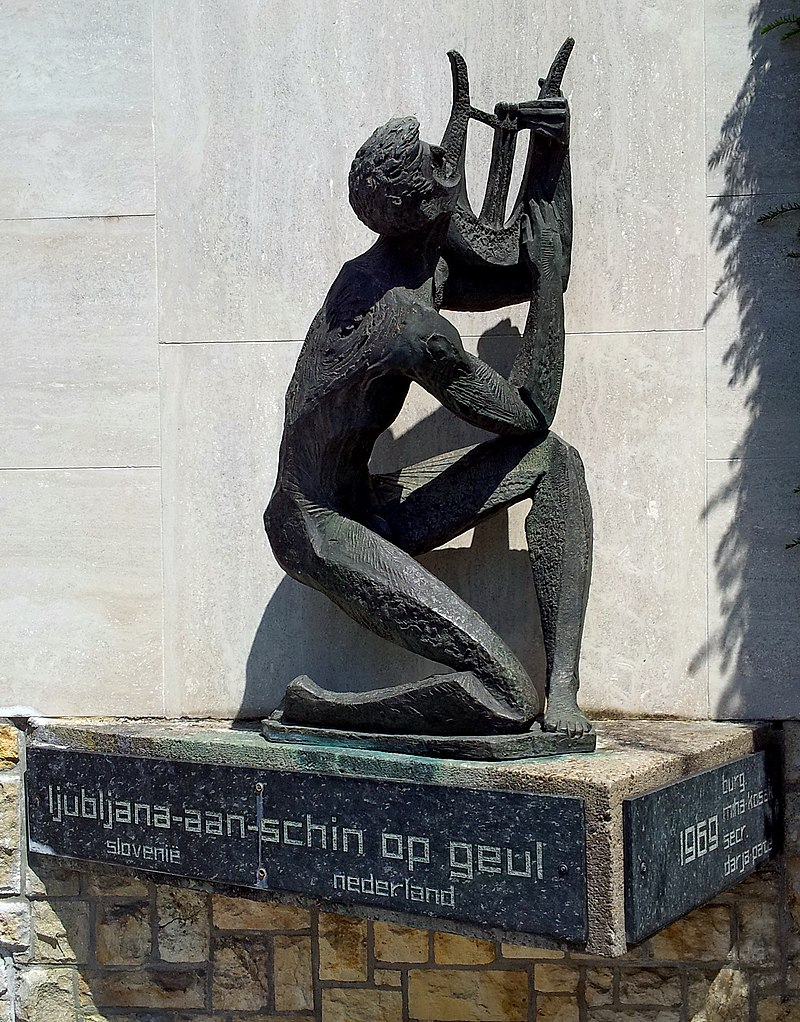
Orpheus, who is widely considered as the greatest musician in Greek mythology, was credited with the composition of the Orphic Hymns. Like Hesiod’s Theogony, The Orphic Hymns served as an irreplaceable source of mythological data. Orphic poetry was recited in mystery-rites and purification rituals. Those who were especially devoted to these rituals and poems often abstained from sex, practiced vegetarianism and refrained from eating eggs and beans. This came to be known as the Orphikos Bios (Orphic way of life).
Due to the power of his music over even Hades himself, Orpheus was also one of the handful of Greek heroes to visit the Underworld and return. Orpheus’ wife Eurydice fell into a nest of vipers and suffered a fatal bite on her heel. Her body was discovered by Orpheus who, in his grief, played such mournful songs that all the nymphs and gods wept. To bring her back to life, Orpheus travelled to the underworld where his music softened the hearts of Hades and Persephone. They agreed to allow Eurydice to return with him to earth on the condition that he should only walk in front of Eurydice and not look back until they both had reached the upper world. Orpheus then set off with his wife behind him. In his anxiety, Orpheus turned to look at her before they reached the upper world and Eurydice vanished from his sight forever.

In Metamorphoses, book X, Ovid recounts that Orpheus: “had abstained from the love of women, … Yet, many felt a desire to be joined with the poet, and many grieved at rejection. Indeed, he was the first of the Thracian people to transfer his affection to young boys and enjoy their brief springtime, and early flowering this side of manhood.” In the frenzy of their Bacchic orgies, the Ciconian women, followers of Dionysus, tore him to pieces. Still singing mournful songs, Orpheus’ head floated down the River Hebrus into the sea where the winds and waves carried it to the island of Lesbos.
Narada, the Fallen Celestial Musician
In his previous incarnation, Narada was a Gandharva (male nature spirits with superb musical skills) who had been cursed to be reborn on earth for singing glories to the demigods instead of the gods themselves. Narada was then reborn as the son of a maid-servant of a group of saintly priests. Pleased by his mother’s service, the priests allowed Narada to eat some of their food which were previously offered to their patron god Vishnu. Being an inquisitive boy, Narada gradually received further blessings from these sages and was allowed to listen to them discussing many spiritual topics.
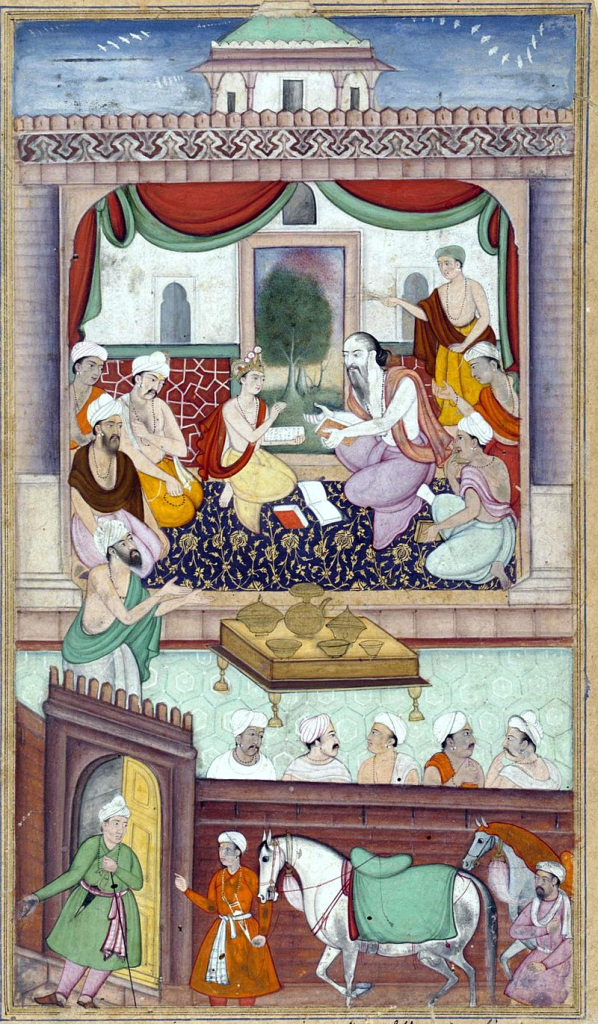
After the death of his mother, he decided to go to the forest in search of enlightenment. Reaching a tranquil forest location, after quenching his thirst from a nearby stream, Narada sat under a tree in meditation, concentrating on the paramatma (supreme self) form of Vishnu within his heart as he had been taught by the priests he had served. After some time, Narada experienced a vision where Vishnu himself appeared before him and said that, despite having the blessing of seeing him at that very moment, Narada would not be able to see his (Vishnu’s) divine form again until he died. Vishnu further explained to Narada that the reason he had been given a chance to see his form was because the beauty and love of Vishnu would be a source of inspiration and would fuel Narada’s dormant desire to be with the gods again. Vishnu then disappeared from his sight. Narada awoke from his meditation both thrilled and disappointed.
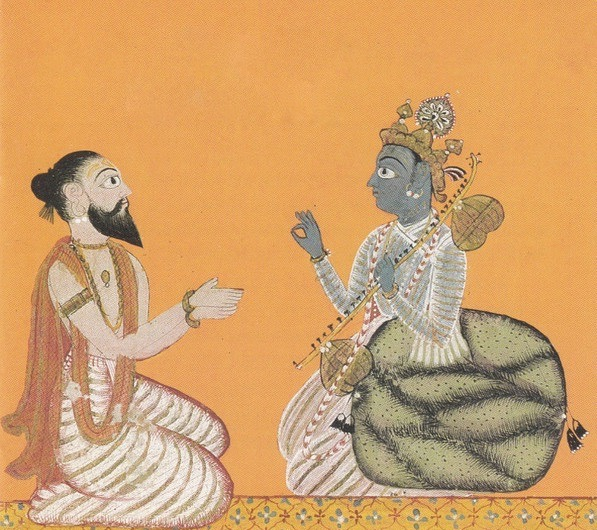
Both wise and mischievous, Narada appears in a number of Hindu texts, notably the Mahabharata and the Ramayana, as well as in the Puranas as a traveling musician and storyteller who carries news and enlightenment. Like Orpheus, he travels to distant realms and is regarded as one of the great masters of poetry and music. He carries a veena, a string instrument, known by the name mahathi which he uses to accompany his singing of hymns, prayers and mantras. Vaishnav enthusiasts depict him as a pure, elevated soul who glorifies Vishnu through his devotional songs, singing the names Hari and Narayana, and demonstrating bhakti yoga.
If Orpheus’ music is mostly described as incredibly beautiful, Narada’s music brings enlightenment. Narada had thorough knowledge of the six Angas, which consist of pronunciation, grammar, prosody, explanation of basic terms, description of religious rites and astronomy. He is also well versed in all that occurred in ancient kalpas (time cycles) and is termed to be conversant with nyaya (logic) and the truth of moral science. He was eloquent, resolute, intelligent and had an excellent memory. He possessed knowledge of this whole universe, above it, below it and everything surrounding it. For the rest of his life Narada focused on his devotion, meditation upon and worship to Vishnu. After his death, Vishnu then blessed Narada with his spiritual form, thus returning him to his rightful place as the divine musician for the gods.
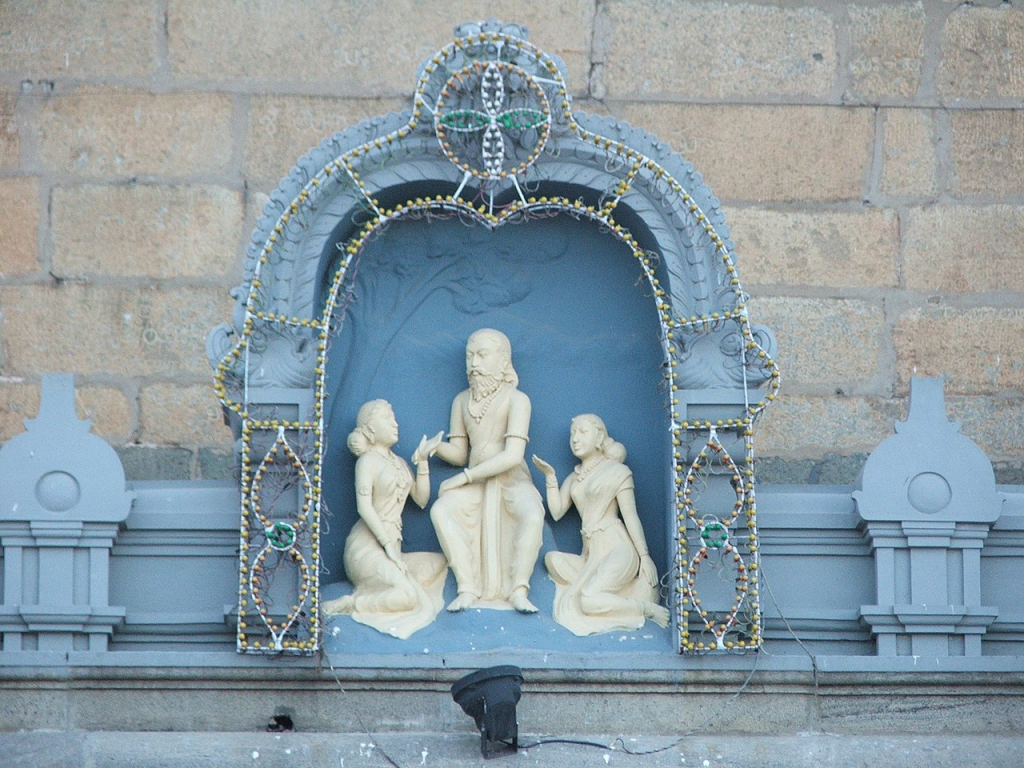
Kui, the Minister of Music
The Lushi Chunqiu also credits another culture hero, Kui, with the invention of music. The Emperor Shun (circa 2294 – 2184 BC) appointed Kui as Music Minister to: ”teach our sons, so that the straightforward shall yet be mild; the gentle, dignified: the strong, not tyrannical: and the impetuous, not arrogant.” He also requested that Kui think of an instrument that harmonized itself with other instruments and can be adjusted so that one instrument will not take from or interfere with another, thus spirits and men are brought into harmony. Kui then invented the drums as well as described the concept of the first orchestra when he said: “when the sounding-stone is tapped or struck with force, and the lutes are strongly swept or gently touched to accompany the singing, the progenitors quietly come to the hall, the guest of Yu takes his place, and all the princes show their virtue in giving place to one another. In the court below the hall, there are the flutes and hand-drums, which join in at the sound of the rattle, and cease at that of the stopper, when the organ and bells take their place.”
